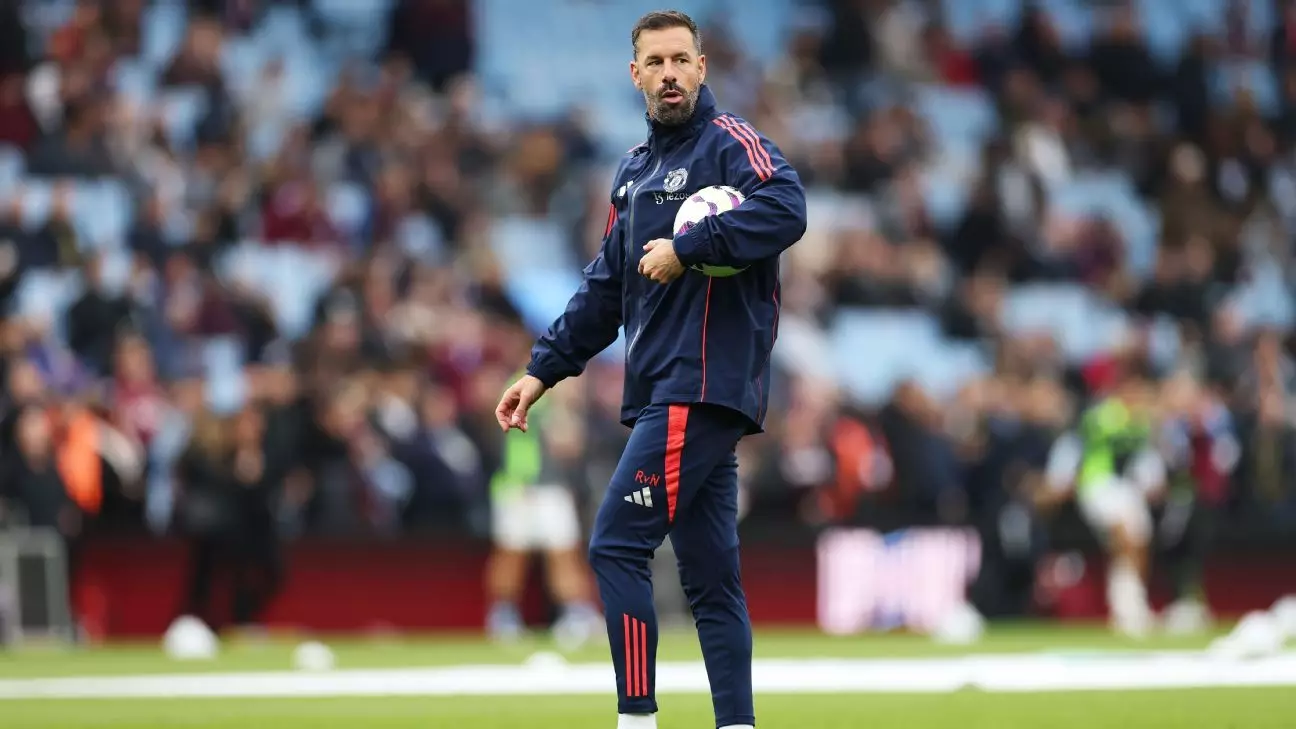When it comes to football management, particularly in the high-octane environment of clubs like Manchester United, the figure at the helm must be not only skilled but also a commanding presence. Ruud van Nistelrooy, recently appointed as the interim head coach following Erik ten Hag’s departure, brings an illustrious playing history combined with a complex persona, setting the stage for what could be a transformative period at Old Trafford.
From his time as a striker, van Nistelrooy left an indelible mark on Manchester United with an impressive tally of 150 goals in 219 appearances. Even after leaving the club in 2006 under a cloud of controversy, his legacy has remained intact. He was known not just for his remarkable scoring ability but also for being a robust personality in a club where egos run high. The account of his past, including confrontations with then-manager Sir Alex Ferguson and emotional encounters with teammates like Cristiano Ronaldo, paints a picture of a player deeply invested in the team dynamics.
Van Nistelrooy’s history with Ferguson, characterized by clashes and subsequent reconciliations, illustrates a fundamental truth about football: coaching and playing are as much about relationships as they are about tactics. Having navigated these turbulent waters before, how he manages relationships with current players, many of whom are struggling, will be as critical as the tactical decisions he makes on the pitch.
Upon taking the interim role, van Nistelrooy inherits a United team currently enduring a rough patch, sitting at 14th in the Premier League standings. The expectations surrounding him are understandably high. Given his storied past with the club and the visible respect he commands, the pressures of immediate results loom large.
Moreover, his prior stint as the head coach of PSV Eindhoven ended controversially, with resignations attributed to a lack of support from the club hierarchy. While his tenure saw the club secure a KNVB Cup victory, discomfort among the players suggested a disconnect in his coaching approach. This duality—being both revered and criticized—could either serve as an invaluable lesson or a burden he must navigate carefully in his new role.
One notable aspect of van Nistelrooy’s coaching career is his adaptability. While at PSV, he adopted a pragmatic counter-attacking style, driven by the limitations of the squad at his disposal. Observing this fluidity and his ability to learn from seasoned tactics will be vital as he adopts a similar approach at United.
However, the challenge is greater now. He must figure out how to implement these tactics with a squad that has struggled for consistency. Notably, he has already engaged in one-on-one discussions with players to understand their perspectives better—an initiative that might pay dividends in cultivating a more harmonious team environment. This will be crucial, especially as several players have endured challenging relationships previously with Ten Hag.
A significant difference in van Nistelrooy’s leadership compared to Ten Hag lies in player morale. Having had a well-documented rift with their previous coach, players like Marcus Rashford and Bruno Fernandes have failed to showcase their true potential this season. Van Nistelrooy’s challenge will be to rejuvenate these talents, leveraging the newfound freedom and morale boost that comes from a coaching change.
Moreover, van Nistelrooy’s energetic background will factor into intensifying training and refining fitness levels. Major improvements will be vital, especially given reports of United fading in games’ latter stages—an issue that plagued Ten Hag’s tenure.
Transitioning from an icon to a coach is rarely seamless, and for van Nistelrooy, this opportunity represents both a challenge and a fresh start. With high stakes, the blend of assertive leadership and the crafting of effective, supportive relationships with the players will be as essential as ever. The swirling urgency surrounding Manchester United requires not only tactical acumen but also an ability to inspire and unite a fractured squad.
In what can only be viewed as a pivotal moment in his fledgling managerial career, the next few weeks are set to define not just the fortunes of Manchester United but also the trajectory of Ruud van Nistelrooy as a manager. With his historical lineage at the club, football enthusiasts globally will be watching to see if he can channel his experience into a successful interim tenure—turning the current tide for which the Red Devils are so desperately in need.

